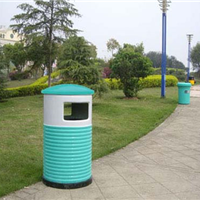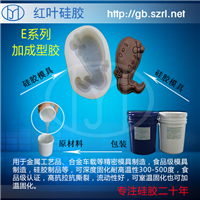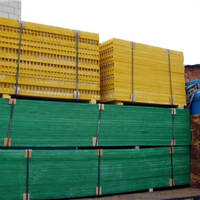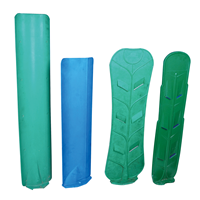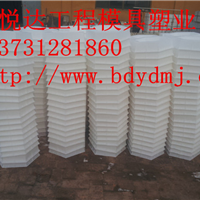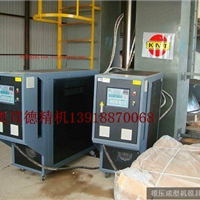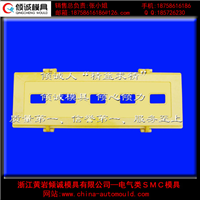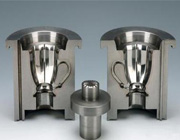
Glass mould
The glass forming mold comprises an upper mold core; Take a look at the mold kernel. Glass mold is an indispensable equipment in glass forming. The quality and output of glass production are directly related to the mold.
1. Glass mold classification
1. Ordinary low alloy cast iron Cast iron was widely used as mold material since the 19th century. Cast iron has excellent casting performance, good processability, low cost, hot and non stick performance, and is suitable for production in small and medium-sized foundries. At present, cast iron is widely used as glass mold material at home and abroad, and alloy cast iron is still the main glass mold material in the foreseeable future. 2. Nodular and vermicular cast iron Nodular cast iron has high strength and toughness, and good oxidation resistance. Its thermal fatigue resistance is better than other cast irons. However, because its graphite is isolated spherical, its thermal conductivity is poor, and it cannot meet the requirements of mechanized production, which limits its use in glass molds. Most factories use it only to manufacture small bottle molds. The mechanical properties of vermicular cast iron are similar to those of nodular cast iron. It has high thermal conductivity, oxidation resistance and growth resistance. It also has good casting properties and machining properties like gray cast iron, which makes vermicular cast iron have good comprehensive properties and can be used to manufacture glass mold materials. 3. D-type graphite cast iron D-type graphite is a kind of flake graphite, which grows between austenite dendrites. The continuity of austenite splits the continuity of graphite flakes, and the gap between D-type graphite and matrix is smaller than that between other flake graphite and matrix. D-type graphite is small, curly and blunt at the end, which determines that it has little cutting effect on the matrix and is not easy to cause greater stress concentration, so D-type graphite cast iron has higher strength At present, the use of D-type graphite cast iron as glass mold material has become a hot spot, and there have been many studies at home and abroad. The analysis of imported molds shows that most of them are made of D-type graphite cast iron. The D-type graphite is usually obtained by adding titanium and adopting metal mold. 4. Alloy steel In recent years, alloy steel has been used to make moulds. In most cases, alloy steel can better meet the requirements for glass moulds than cast iron. The thermal conductivity of steel is inferior to that of cast iron, so it is easy to overheat and cause adhesion. Therefore, forced cooling, reasonable design of mold structure, silicone grease lubrication and other methods must be adopted. Stainless steel is a kind of material with corrosion resistance, high strength, oxidation resistance and good toughness. Its thermal conductivity is poor, thermal expansion is small, and the composition is various. It has been used for manufacturing punches and lining dies in Britain for a long time. AISI 430 (12-14 Cr) and AISI 310 (25 Cr, 20Ni) stainless steels are used in the United States to make some mold parts. 5. Nickel base alloy This kind of alloy has better heat resistance than cast iron, so the mold made with it has fewer surface cracks, long service life, high productivity, and can improve the smoothness of glass products, but this kind of material is expensive. In order to improve the surface finish of glass products or extend the replacement cycle of mold parts, such materials are still commonly used for molding 6. Copper base alloy This kind of alloy has good thermal conductivity, and can still ensure the quality of glass products during high-speed molding, so it has received considerable attention. At present, there are mainly two types: one type contains Cu, Al, Zn and Ni, which are the most effective to improve the surface finish. This alloy has good oxidation resistance, thermal conductivity, thermal stability and thermoplasticity, which significantly improves the operating conditions of the molding machine. The other type contains Cu, Al, Ni and Co, but does not contain Zn. Compared with cast iron, it can increase the machine speed by 15~25 times, and prolong the service life of the working face of the mold by about three times. The mold is easy to repair, and the product quality is good. 7. Mold coating At present, thermal spraying coating is often applied to the corners of glass mold and the part where the punch contacts the glass, and a layer of nickel chromium alloy powder is sprayed and welded to improve the high-temperature wear resistance, high temperature resistance and oxidation resistance of the contact surface. The glass mould made of gray cast iron and thermally sprayed with nickel base self fluxing alloy can increase the service life of the mould by more than 5 times. The main problem is the need for reprocessing and the high cost of the mould.
2. Common application of glass mold
The glass forming mold is a positioning ring positioned between the upper mold core and the lower mold core; And an external mold sleeve for installing the upper mold core, the lower mold core and the positioning ring; Manufacturing industrial FRP molds are widely used! Cast iron, steel, aluminum, etc. In addition, FRP mold has a longer service life than wood mold, is not deformed, and is easy to modify. Now it is the main mold material. Glass mold has two functions, cutting, polishing. Glass mold products are indispensable consumables in production and processing, which are also commonly referred to as industrial consumables. Glass molds are widely used in mechanical production, equipment manufacturing, automobile polishing, furniture polishing and other industrial production and processing of industrial products. Although glass molds are widely used, there are still some problems in the industry.
3. Development history of glass mold
With the rapid development of China's economy, all walks of life in China have made great progress, which has also stimulated the rapid development of China's glass mold industry. However, some problems have also been exposed in the development of glass mold industry. The development of glass mold industry is restricted by technology and product innovation, product energy conservation and emission reduction. However, the low threshold of the glass mold industry has caused scattered chaos in the entire industry, and there is no unified production and quality standards. At present, the scale and structure of China's glass mold enterprises are still unreasonable, the industrial concentration is low, and small enterprises still account for a large proportion. The production capacity of the enterprise is scattered, the scale is small, and the benefit is low. However, the research and development capability of new products in the glass mold industry is weak. The domestic abrasive glass sand products are mainly concentrated in the middle and low end markets, with low technology content, especially the lack of high-end technology products, which mainly rely on imports; However, low-end products are seriously homogenized, resulting in overcapacity, especially corundum production. In order to maintain a healthy and orderly development, China's glass mold industry needs to solve these problems.
4. Business opportunity of glass mold
-
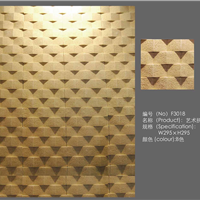 Beijing FRP Mould Factory
Beijing FRP Mould Factory
-
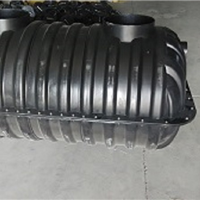 Professional manufacturing of injection molding and blow molding
Professional manufacturing of injection molding and blow molding
-
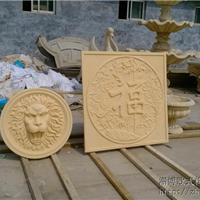 Supply of cement products, glass
Supply of cement products, glass
-
 Supply FRP air conditioning pier
Supply FRP air conditioning pier
-
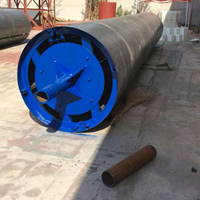 Supply of FRP septic tank
Supply of FRP septic tank
-
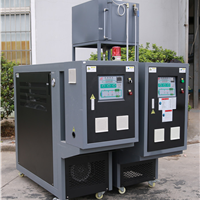 Hengshui FRP mould temperature machine
Hengshui FRP mould temperature machine
-
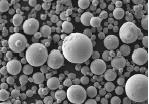 Glass mold spray welding powder
Glass mold spray welding powder
-
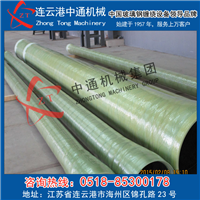 Supply of FRP pipe mould
Supply of FRP pipe mould
-
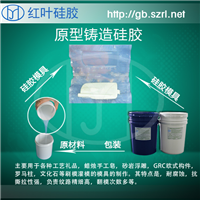 Supply outside the GRP yacht
Supply outside the GRP yacht
-
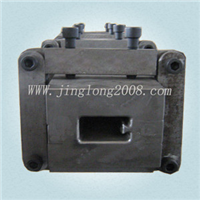 FRP pultrusion die report
FRP pultrusion die report
5. Glass mold brand
-
 Baoding Jianfeng Mould Manufacturing Co., Ltd
Baoding Jianfeng Mould Manufacturing Co., Ltd
-
 Baoding Jianfeng Mould Manufacturing Co., Ltd
Baoding Jianfeng Mould Manufacturing Co., Ltd
-
 Baoding Lichang Mould Manufacturing
Baoding Lichang Mould Manufacturing
-
 Huaxing, Qingyuan District, Baoding City
Huaxing, Qingyuan District, Baoding City
6. Glass mold news
-
We all know that high temperature exposure, excessive glass impurities and other reasons may cause self explosion of tempered glass. 1、 The reasons for the cracking of tempered glass are as follows: (1) In the glass, there are [Detailed]
-
In order to carry out the performance revolution of doors and windows to the end, we will vigorously promote the evolution of the door and window industry into a new stage of high-performance doors and windows! On July 8, Fuxuan Group held a grand ceremony at the Fuxuan Whole House Door and Window Exhibition Hall of Guangzhou Construction Expo [Detailed]
7. Glass mold enterprises
-
Main products: Xinjiang FRP septic tanks, FRP fire pools, FRP fire tanks, FRP pipes
-
Main products: inspection well mold, drainage ditch mold, septic tank mold, isolation pier mold, wind power foundation template, various steel molds, and special-shaped molds.
-
Main business: mold manufacturing
-
Main products: precision mold accessories, hard alloy, tungsten steel materials, ceramics, hardware tool products, non-standard mechanical parts, metal materials
-
Main business: glass processing, ultra-thin electronic glass, ultra white glass, laboratory glass customization, domestic imported quartz glass, ITO/FTO/AZO conductive glass, float soda lime glass original
-
Main products: biological deodorization tank, storage tank, washing tower, FRP centrifugal fan, biological filter, pipeline, air valve
8. Quotation of glass mold















